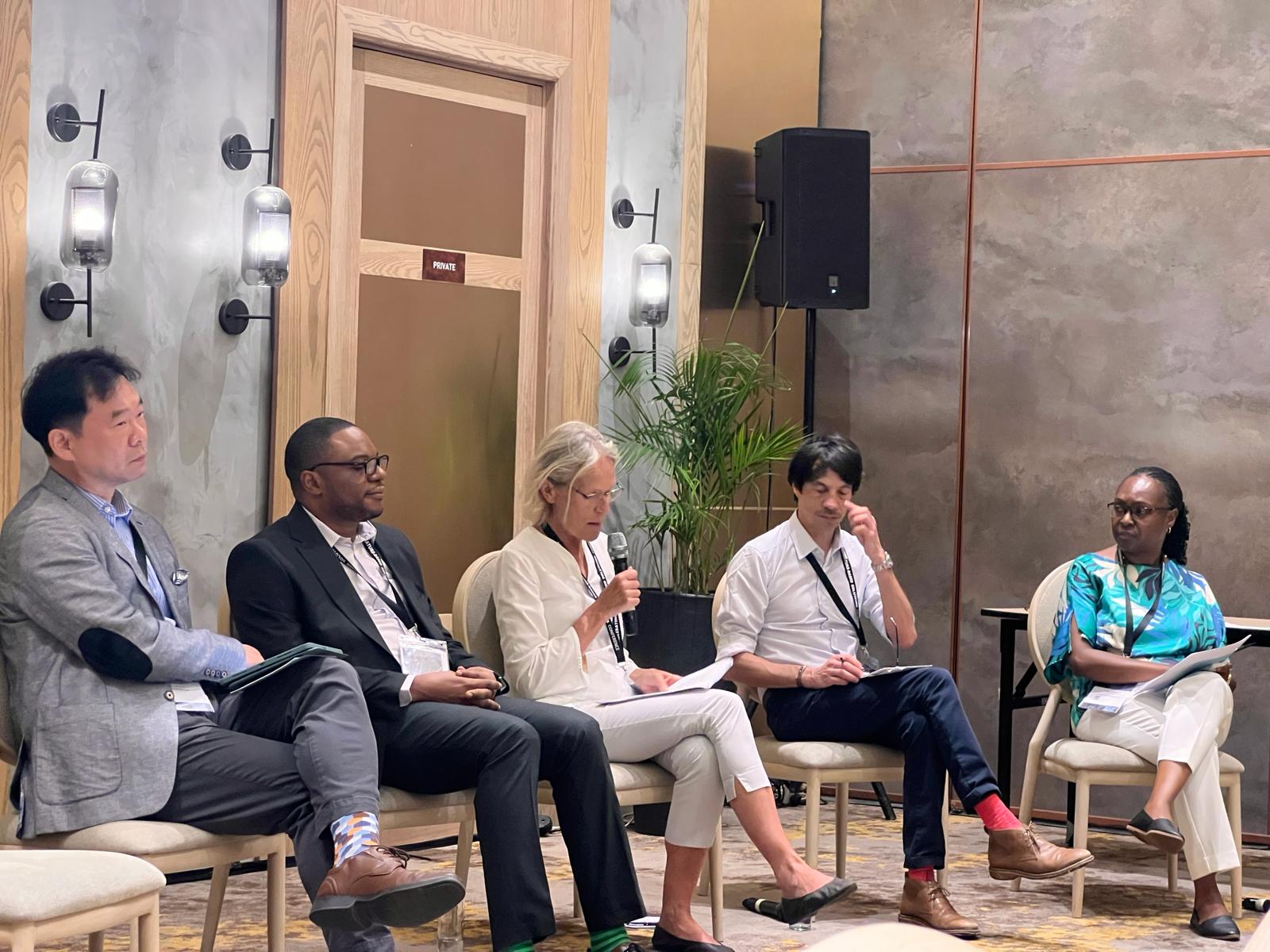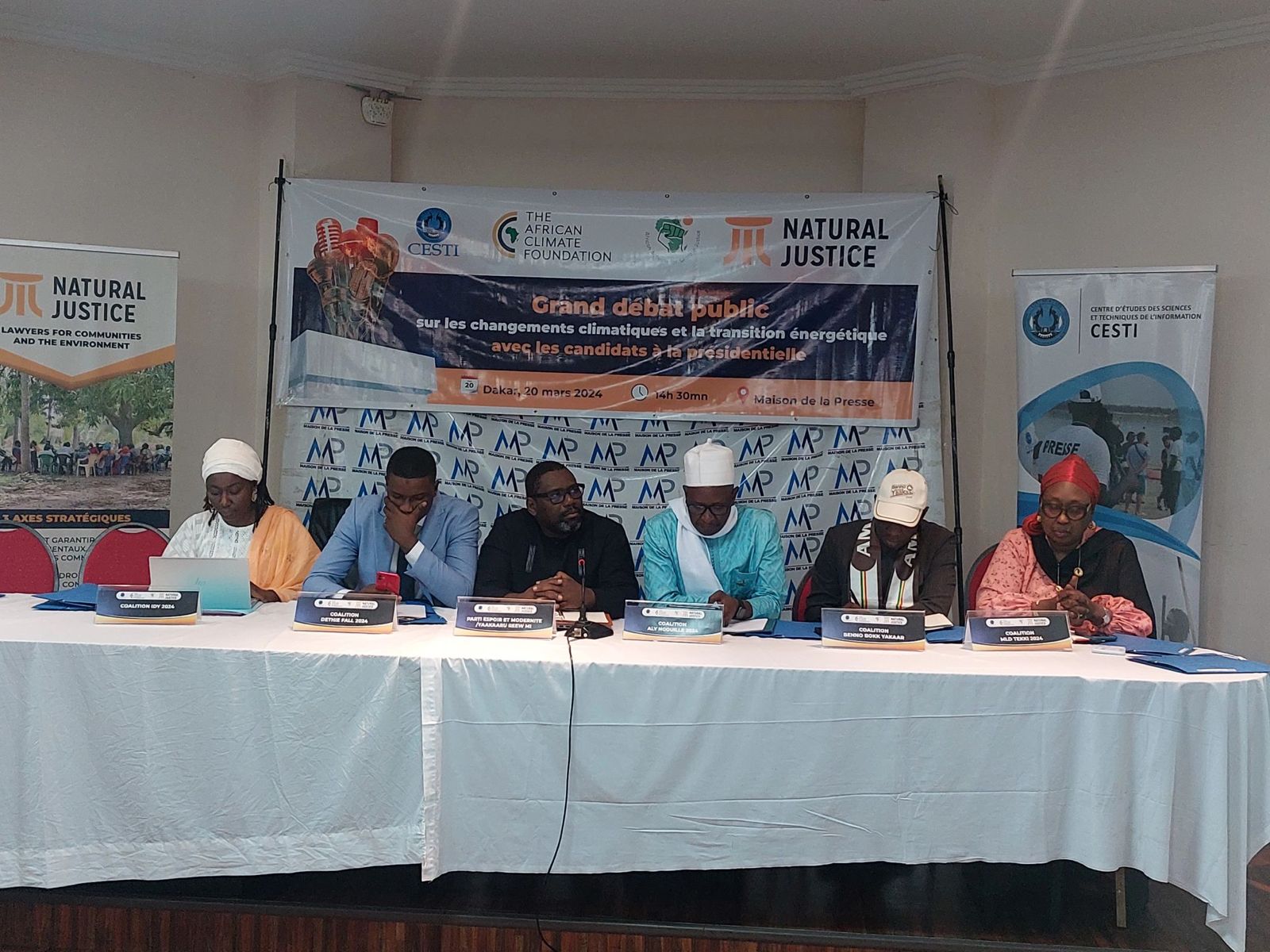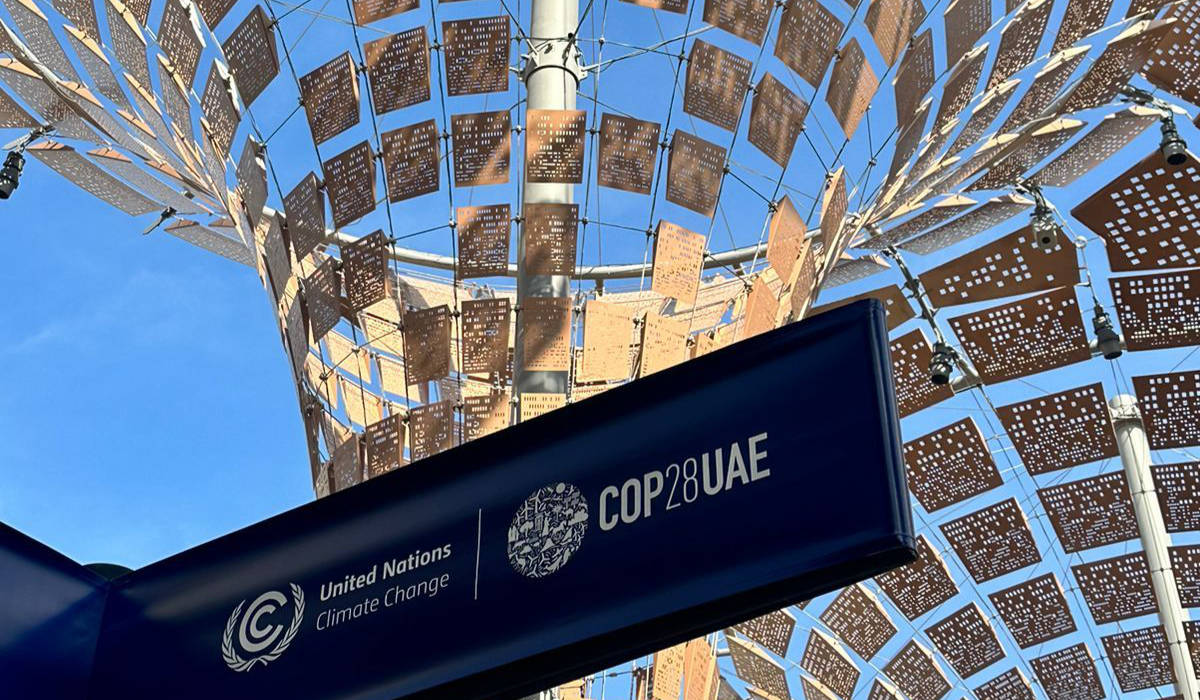It is critical that Nigeria and other African countries experience just energy transitions that takes into consideration the need to meet the huge energy gap on the continent, the National Dialogue on Energy Transition heard.
Presently Nigeria’s economy is centred around fossil fuels, with oil companies still playing a dominant role and gas resources also luring investors. Yet tough questions had to be asked about future fossil fuel investments in the needed transition, with the future role of gas as a transition fuel properly examined.
The National Dialogue was convened by the Nigeria Extractive Industries Transparency Initiative (NEITI), BudgiT, and the Natural Resources Governance Institute (NRGI) in Abuja in October 2022. The African Climate Foundation were pleased to support organisers NRGI to facilitate this dialogue, which took place only weeks before COP27.
The dialogue aimed to encourage discourse on what energy transition entailed, as the debate around Nigeria’s options for a just energy transition is expected be one of the key issues in the country’s 2023 elections.
Delegates which included fossil fuel stakeholders such as Nigeria National Petroleum Company (NNPC), also debated government’s energy transition plan, questioning how it will ensure that it is inclusive, equitable, ambitious and responsive to the reality and context of the Nigerian people.
Executive Secretary of NEITI, Dr Orji Ogbonnaya Orjiurged Nigeria’s government to ensure that the current push for global energy transition is driven by the national interest, adding that Nigeria should not shy away from identifying opportunities in its untapped oil, gas and mining resources.
As an oil and gas dependent country, Nigeria is highly vulnerable and exposed to the risks and challenges of an energy transition, he warned.
Orji added that the statement made last year at COP26 made by some countries that they were ending financing of overseas fossil fuel energy projects by the end of 2022 posed a challenge to Nigeria and would reshape the oil and gas landscape.
Many delegates emphasised that gas still had an important part to play in the transition, despite the notion of future infrastructure ending up as stranded assets.
NNPC’s Chief Financial Officer, Umar Ajiya said gas was Nigeria’s transition fuel and that the country would maximise it and add value through creating job opportunities and reducing poverty and security.
He said that Nigeria was committed to the energy transition agenda, but on equitable terms so that Nigeria is not short-changed.
NRGI stressed the need to build platforms and collaborations to debate difficult energy transition issues, such as the role of gas. The institute said it envisage an energy transition agenda for Africa broadly and Nigeria more narrowly, that delivers value, protects the environment and addressed issues of energy security and poverty, while supporting a people-centred economic growth.
Nafi Chinery, West Africa Regional Manager at the NRGI, said Nigeria’s emphasis on gas as a transition fuel aligns with the thinking of most countries in Sub-Saharan Africa, and the African Union Commission in the run-up to COP27.
She said that while Africa consumes less and accounts for little of the global carbon emission, it is impacted more by the effects of energy transition and needs to act fast in considering alternatives, if it is to guarantee the future of its economies.
Represented by their focal person for Nigeria, Zira Quaghe, the African Climate Foundation stressed that Africa must focus its attention on seizing the opportunities the transition brings while minimising the risks. He also shared the Foundation’s expertise on gas and the lessons other regions have learnt on their decarbonisation journey.



